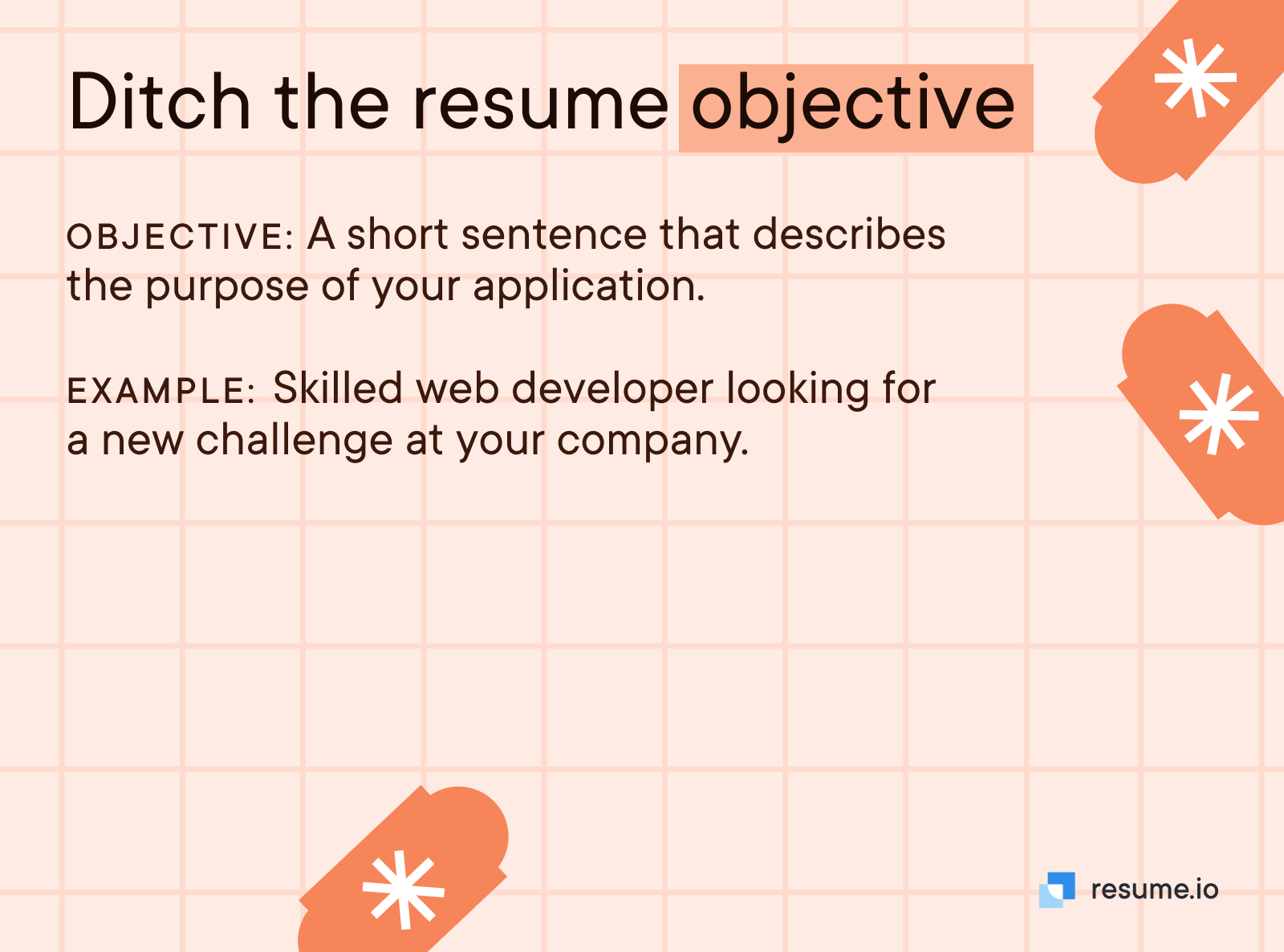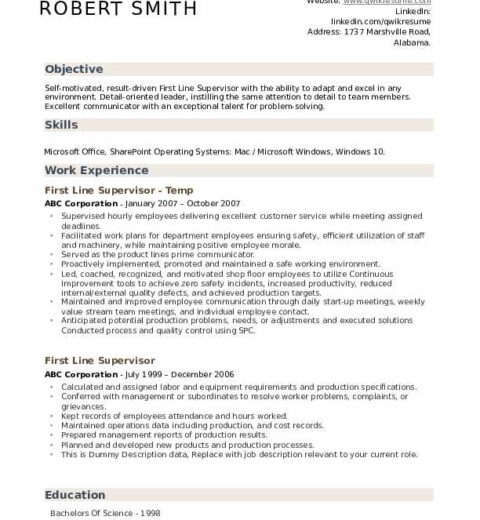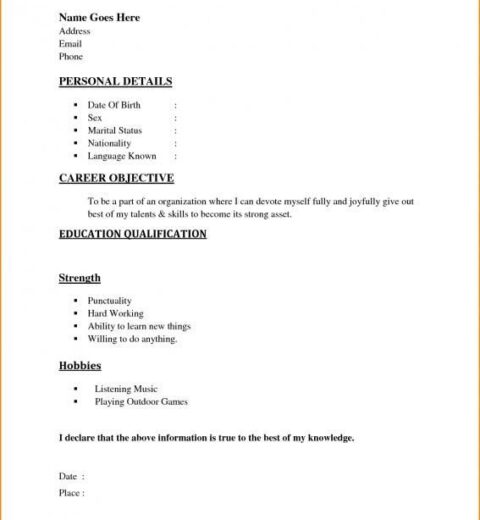Crafting an effective resume objective can seem like a daunting task for many job seekers. This seemingly quaint sentence introduces your candidacy and is your first opportunity to draw attention to your qualifications. It’s essential to ensure that this small but mighty component hits the mark. Below, we delve into the art and science of writing compelling resume objectives that resonate with hiring managers.
To commence, it is imperative to understand what a resume objective entails. A resume objective is a concise statement of your career goals and how they align with the needs of the employer. It provides clarity on your professional aspirations while allowing you to hint at the value you can bring to an organization. When succinctly crafted, an objective can serve as a springboard for the rest of your resume.
First, let’s consider the different types of resume objectives. The most prevalent is the career change objective, tailored for individuals transitioning between distinct industries. This type should emphasize transferable skills and relevant experiences that bridge the gap between previous roles and the desired position. For instance, an individual moving from education to corporate training might state their passion for fostering growth and development in diverse environments.
Next, there are objectives for entry-level positions tailored for recent graduates or those with minimal experience in the workforce. These objectives should focus on educational accomplishments, internships, or volunteer activities that demonstrate initiative, skill acquisition, and a genuine desire to contribute. An entry-level objective might declare enthusiasm for leveraging newly acquired skills in a practical setting, thus appealing to employers looking for fresh, eager talent.
Furthermore, experienced professionals often opt for an objective that highlights their extensive skill set and achievements. Such objectives should be laden with industry-specific jargon and quantified accomplishments that underscore a proven track record. For instance, a seasoned sales manager might include metrics demonstrating successful revenue generation, aiming to capture the attention of employers seeking tangible results.
Now that we’ve identified various types of resume objectives, it’s crucial to address the fundamental components that make up an effective statement. Clarity and specificity are paramount. An effective resume objective should be tailored to the specific job and organization you are applying for. Generic statements are ineffective and signal to employers a lack of genuine interest in their company or role.
When crafting an objective, start with a strong action verb, followed by a clear depiction of your professional aspirations. For instance, instead of saying, “I want to work in marketing,” a more impactful approach would begin with, “Aspiring marketing specialist seeking to leverage creativity and data analysis skills in a dynamic team.” This small but significant shift places the focus on what you bring to the table rather than merely stating what you want.
Moreover, incorporating keywords from the job description can greatly enhance your resume’s alignment with the specific role. Hiring managers often use applicant tracking systems (ATS) to filter resumes, and the inclusion of pertinent keywords can significantly improve the chances of your resume being seen by a human recruiter. Carefully comb through the job listing to pinpoint essential skills and phrases, and weave them seamlessly into your objective.
It is also beneficial to convey enthusiasm and a genuine interest in the field. Hiring managers appreciate candidates who exhibit passion and dedication to their professions. Additionally, projecting forward momentum can tantalize employers; for instance, consider stating your intention to grow within the company, thereby suggesting you are not merely seeking a job but envisioning a career path that synergizes with the company’s goals.
Another captivating aspect of an effective resume objective is the element of uniqueness. Strive to distinguish yourself from the plethora of applicants vying for the same role. This differentiation could stem from a unique combination of skills or experiences that tie into the job in question. For example, a graphic designer with a background in psychology might articulate a capacity for understanding consumer behavior, thereby illustrating how their expertise can enhance marketing projects.
Additionally, the structure and length of your objective are vital considerations. Typically, a resume objective should be one to two sentences long, approximately 30 to 50 words. You want to communicate your message succinctly and effectively; verbosity can dilute the potency of your statement and turn off potential employers. It should be a succinct snapshot that invites the recruiter to delve deeper into your qualifications.
Finally, after you draft your resume objective, it is critical to solicit feedback. Peer reviews or consultations with career advisors can provide invaluable insights. They may identify vague language, suggest improvements, or provide alternative perspectives that can enhance the overall effectiveness of your statement.
In conclusion, a compelling resume objective can significantly impact your job search trajectory. Whether you are seeking to reinvent your career path, embark on your professional journey, or leverage extensive experience, these guiding principles provide a roadmap for crafting an objective that works. By honing in on clarity, specificity, and originality, you can create an objective that not only captures attention but also aligns with the aspirations of potential employers. Remember, the objective is not just a statement; it is an invitation for hiring managers to continue exploring your qualifications and consider you for their team.




